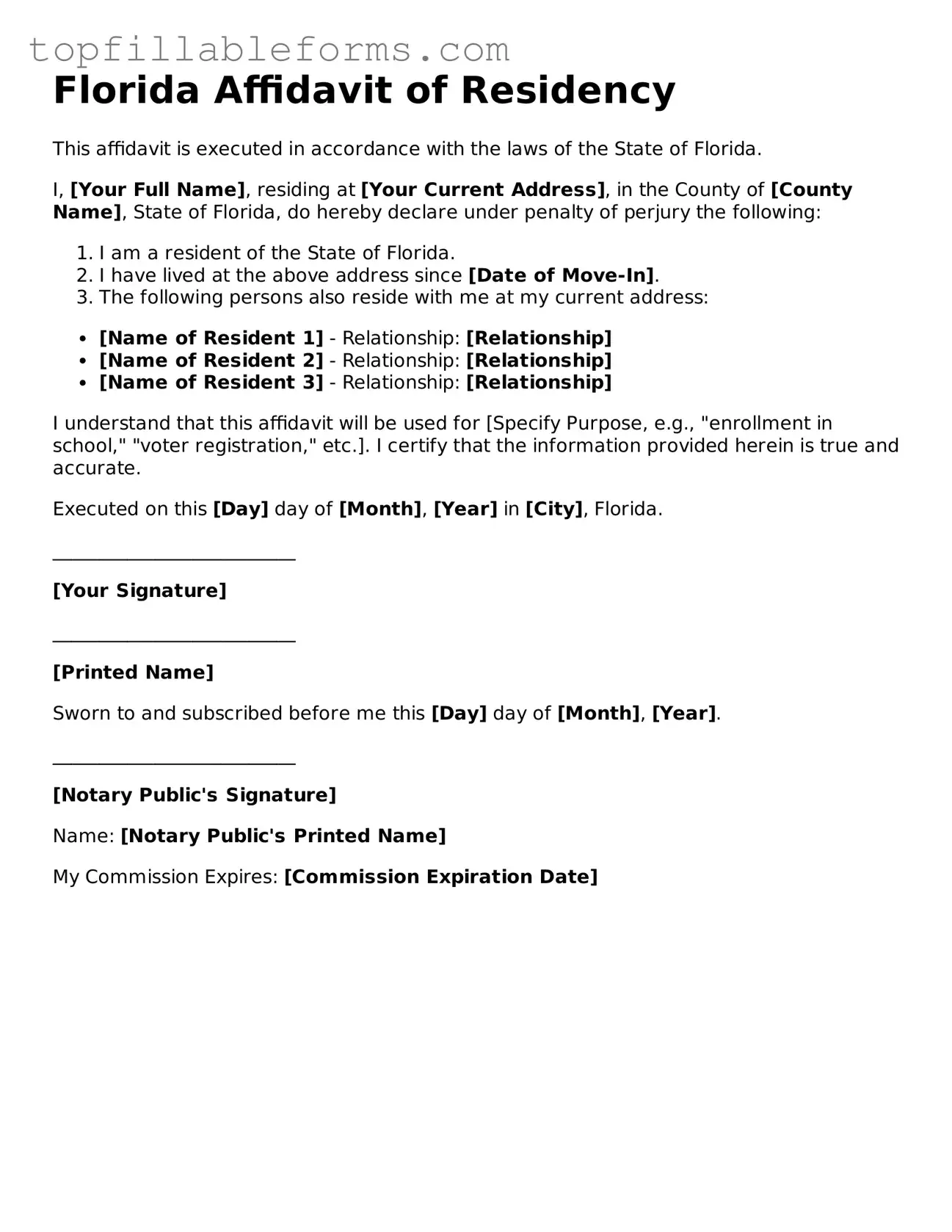Attorney-Verified Affidavit of Residency Template for Florida
The Florida Affidavit of Residency form is a legal document used to verify an individual's residency in the state of Florida. This form is often required for various purposes, such as enrolling in schools or obtaining certain benefits. Understanding its importance and how to complete it can make navigating residency issues much easier.
Open Affidavit of Residency Editor Here

Attorney-Verified Affidavit of Residency Template for Florida
Open Affidavit of Residency Editor Here
Finish the form now and be done
Finish your Affidavit of Residency online by editing, saving, and downloading fast.
Open Affidavit of Residency Editor Here
or
▼ PDF File
